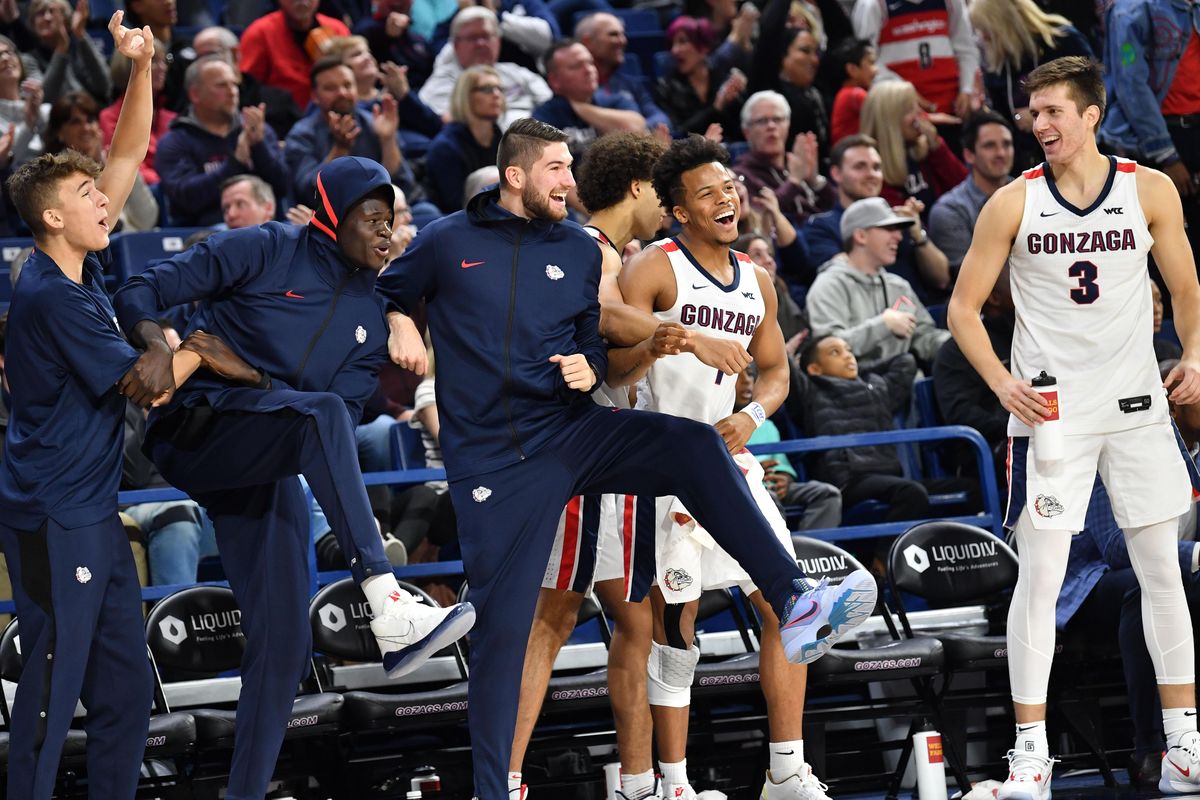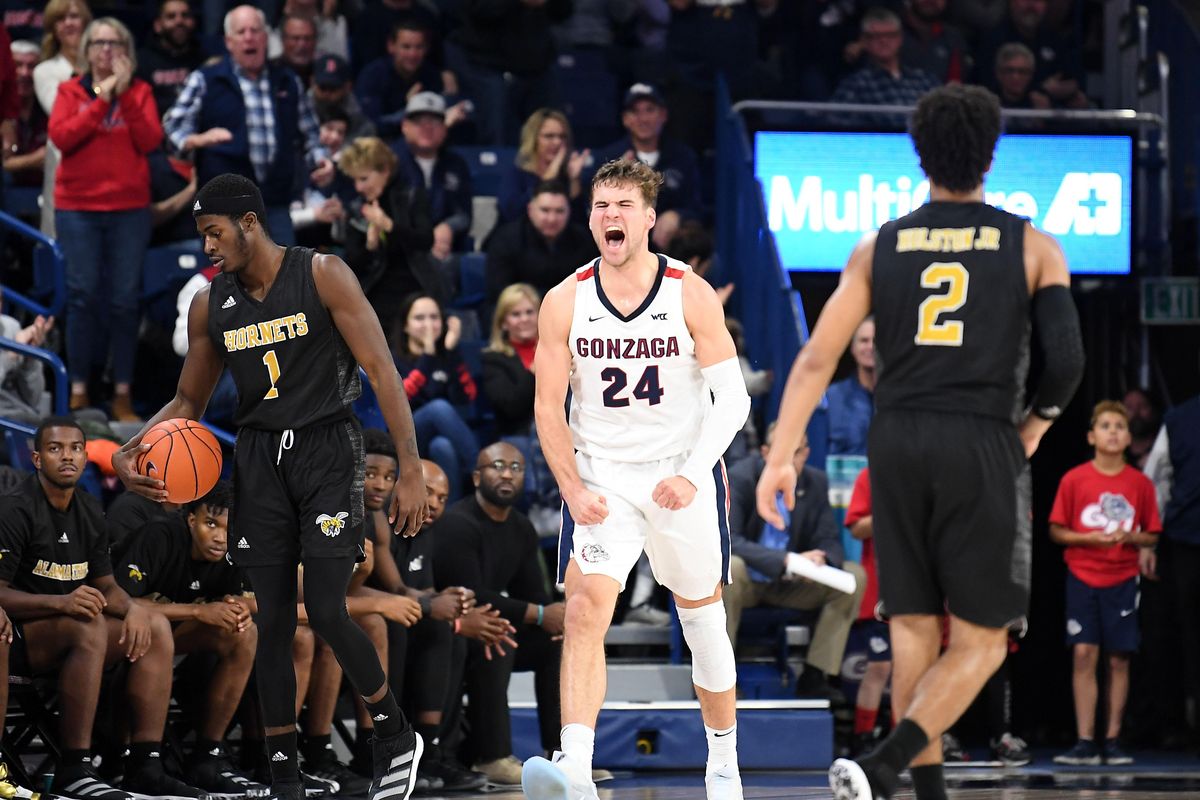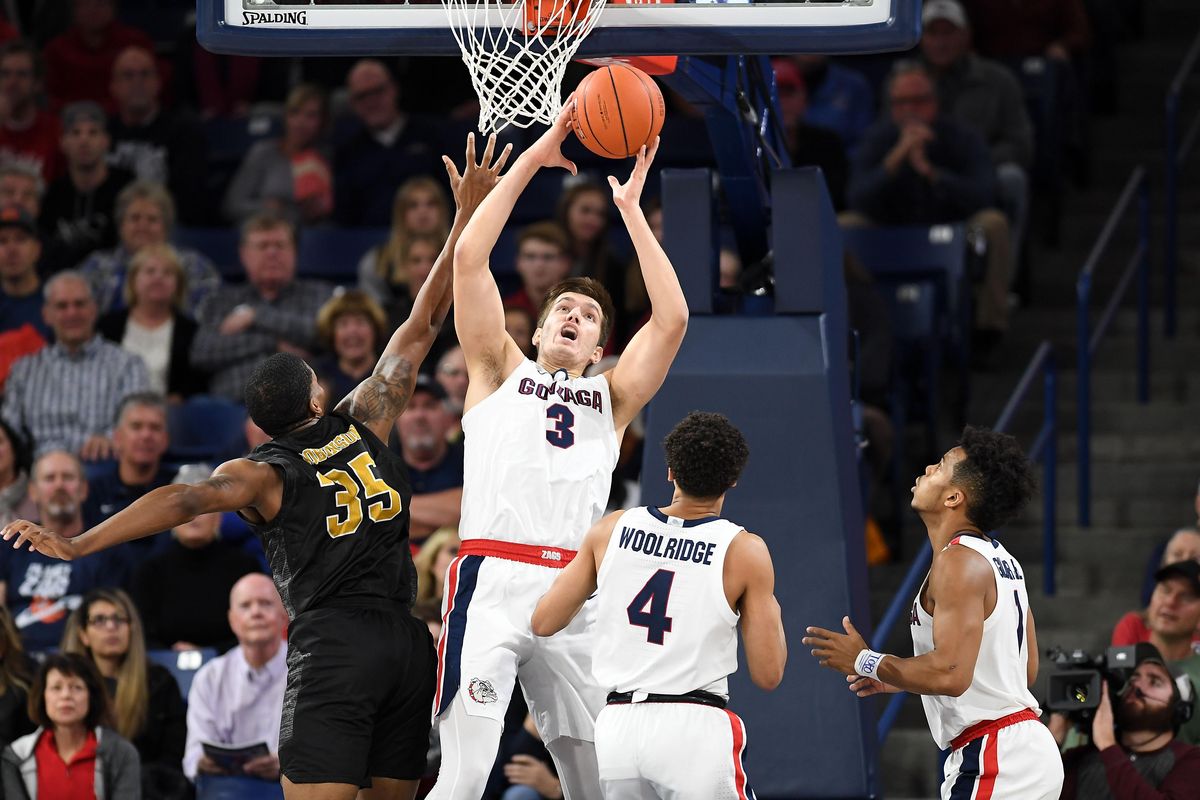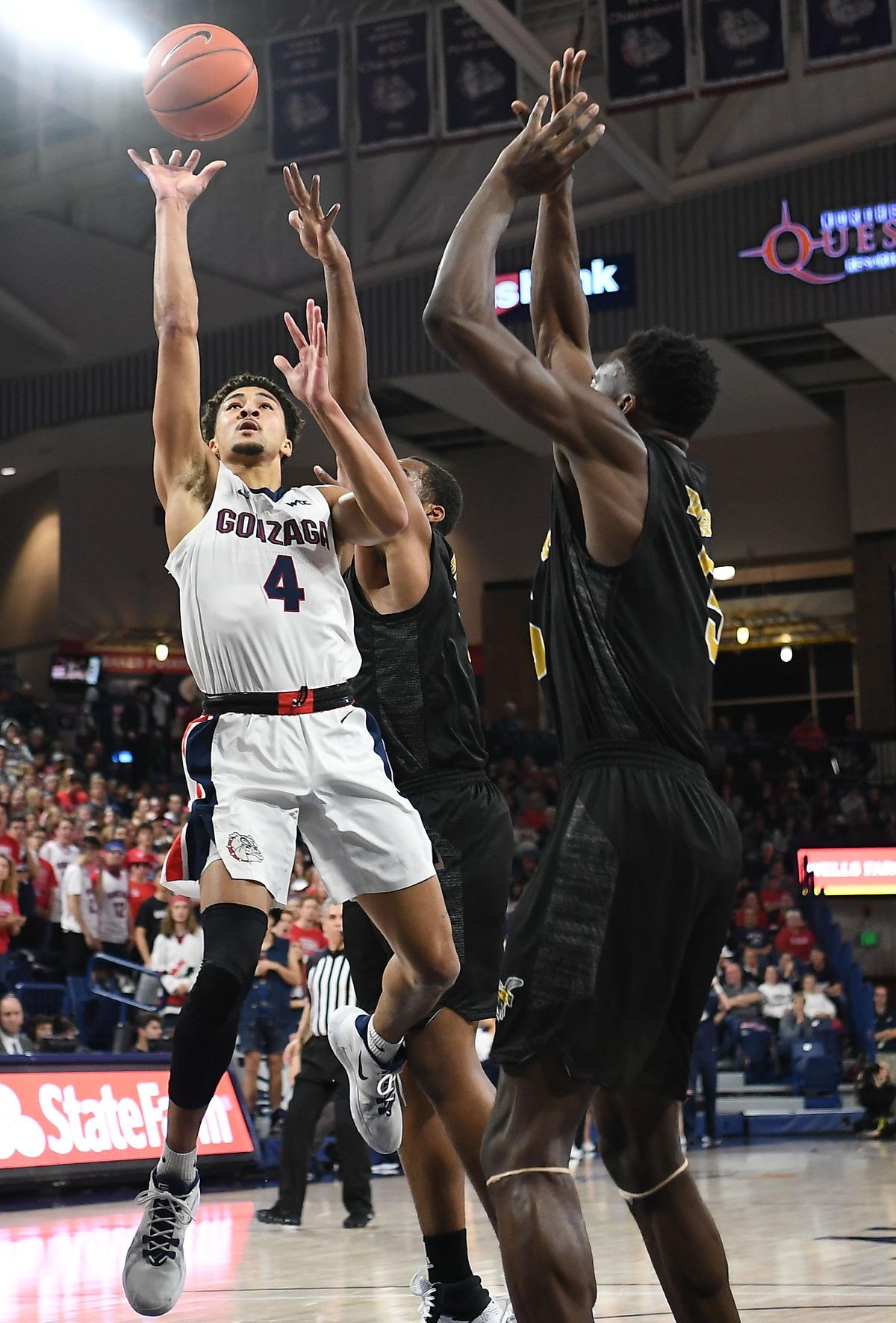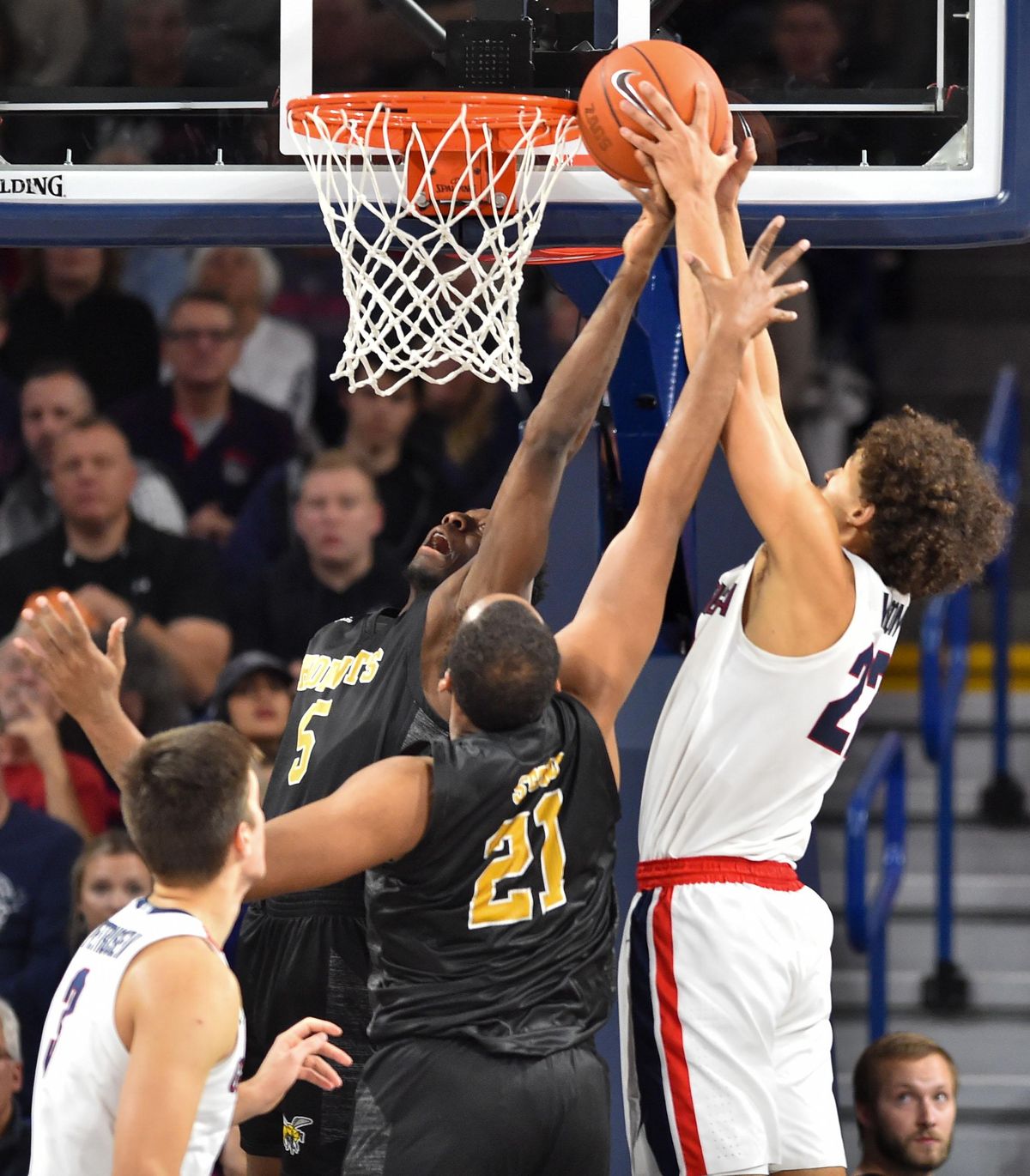John Blanchette: Gonzaga’s quiet cast must learn to chat, and in a snap

There was a sitcom-worthy moment last week after Gonzaga’s exhibition game romp as a few young Bulldogs relaxed in their locker-room lounge, refueling on some grub and, well, doing what kids do.
Then in walked Dad.
“You guys get off your phones and talk to each other,” head coach Mark Few said in a voice that seemed to be equal parts needle, scold and sigh.
Ah, another episode of Those Darned Gen-Z’ers. Must-see TV.
Millennials, they say, have put brick-and-mortar retail, running, bar soap and golf on the critical list all by ordering too much avocado toast, and perhaps this next wave of humanity will administer the killing blow to all those cultural staples and more. But all Few is concerned about, really, is talking – and, no, it’s not even about the phones, since as yet the rules makers haven’t allowed that technology on the basketball court.
Yes, talking.
“Seems like a simple thing, but it’s hard to pull out of some of these guys,” Few said Tuesday night after the Bulldogs opened the season with a 95-64 win over Alabama State which wasn’t exactly that easy.
These Bulldogs are, as advertised, gifted and fun, with dimension in multiples. What freshman Anton Watson did to take over the exhibition game, the team’s most veteran player available – Corey Kispert – matched in completely different fashion this night.
They are also perhaps the most work-in-progress project Few has taken on from scratch.
The most experienced player, Killian Tillie, remains on the sideline, recovering from knee surgery. Beyond Kispert, the only other returning pieces – Filip Petrusev and Joel Ayayi – had 19 games between them a year ago when they didn’t leave the bench.
But of all the teaching that must be one with a largely untested cast, communication might be job one.
“The hardest thing for us, quite frankly, is getting these guys to talk,” Few acknowledged, “and just talking to some of my buddies in the profession, it’s almost a generational thing.
“They’re just quiet, and it’s hard to even get them to call out ball screens so they don’t get their heads taken off. And we switch our coverages a lot, so it’s really important.”
This was driven home frequently against the Hornets, a game Southwestern Athletic Conference outfit and mostly unremarkable, except perhaps for an ability to shoot the ball spectacularly when open. Which they were often enough, notably when the Zags doubled the post and were unable to recover.
Alabama State drilled 3-pointers on three consecutive trips down the floor early in the second half that prompted Few to call timeout and greet his team by pointing to his ears and imploring them to listen – which is different than talking, yes, but in the same vein.
“The communication has to be there,” said guard Ryan Woolridge, one of GU’s two graduate transfer newcomers. “You saw it when we were switching defenses and not everyone was on the same page, leaving a guy open to shoot a 3 or for a back door.”
But that’s all new teams, right? Just a matter of not being used to one another?
Perhaps. But it seems to be compounded with these Zags.
“These guys are quiet,” Kispert admitted. “(Few’s) used to guys like Rob Sacre and Kelly Olynyk who just talk all the time.”
And it may indeed be generational to an extent – but also circumstantial.
Gonzaga Bulldogs forward Corey Kispert (24) reacts after he dunked the ball and forced a timeout by Alabama State during the second half of a college basketball game on Tuesday, November 5, 2019, in Spokane, Wash. Gonzaga won the game 95-64. (Tyler Tjomsland / The Spokesman-Review)
“It’s gotten harder over the years,” assistant coach Brian Michaelson said. “Last year we had quiet guys like Rui (Hachimura) and Brandon Clarke, but we had enough upperclassmen – Zach (Norvell), Josh (Perkins) and Geno Crandall was out of this world – who brought guys along. Corey could feed off that, and eventually Rui and BC got it. But all those guys had the advantage of not being needed to be vocal when they got here. They were in roles where it wasn’t needed.
“These guys don’t have that time. We have two grad transfers who have to play right away in huge roles – and they’re both awesome guys, but they’re inherently quiet people. Filip Petrusev didn’t have to talk last year. That’s over.”
There are signs of vocal life. Kispert seems to be warming to his alpha role, Ayayi is getting there and freshman Drew Timme is hardly a wallflower.
“There was a point I said to the other coaches, ‘Look, we’ve got Drew talking out there,’ ” Michaelson said. “Maybe he’s not 100 percent sure of what’s going on, but at least he’s talking.”
But as Tillie noted, “Communication has always been one of the things our teams have done best – and it’s definitely one of our biggest issues.”
So what can they do? Well, they can talk about it, right?
“But they just don’t talk much,” Few said.
Which brings up the question: Can a team walk the walk until it talks the talk?

